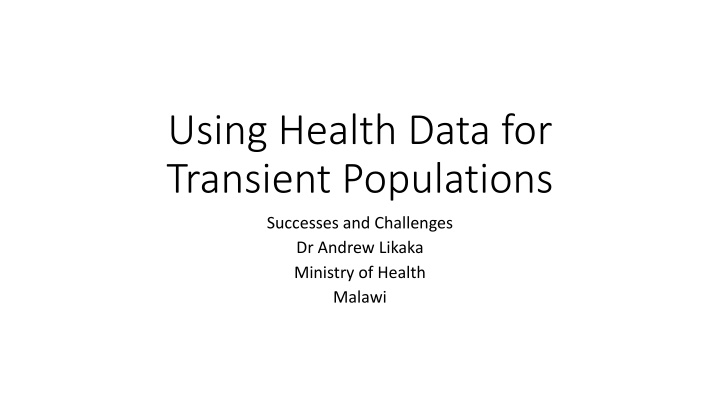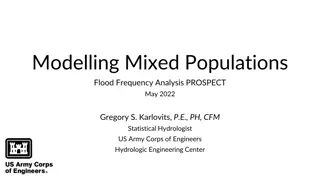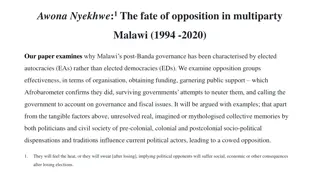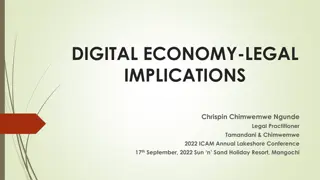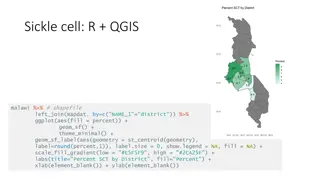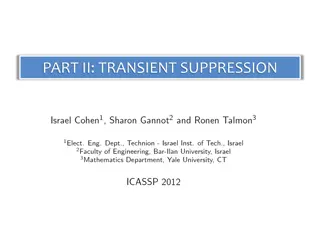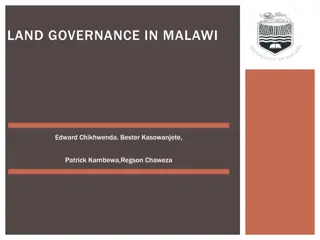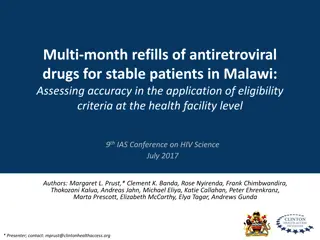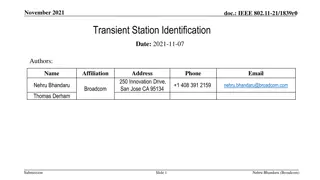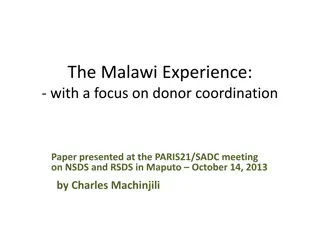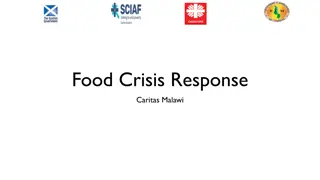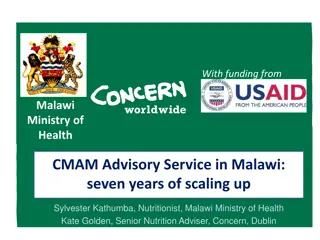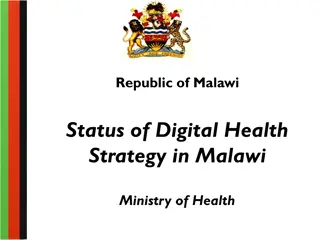Enhancing Health Data Usage for Transient Populations in Malawi
Exploring the challenges and successes in using health data for transient populations in Malawi, this presentation covers migration trends, potential opportunities, and recommendations for data use and exchange. Case studies illustrate the complexities of managing health data for mobile populations, highlighting issues such as ownership, data storage, and data sharing legislation. The studies include scenarios from local transit, refugee camps, and migration to South Africa, offering insights into improving healthcare for transient populations.
Download Presentation

Please find below an Image/Link to download the presentation.
The content on the website is provided AS IS for your information and personal use only. It may not be sold, licensed, or shared on other websites without obtaining consent from the author.If you encounter any issues during the download, it is possible that the publisher has removed the file from their server.
You are allowed to download the files provided on this website for personal or commercial use, subject to the condition that they are used lawfully. All files are the property of their respective owners.
The content on the website is provided AS IS for your information and personal use only. It may not be sold, licensed, or shared on other websites without obtaining consent from the author.
E N D
Presentation Transcript
Using Health Data for Transient Populations Successes and Challenges Dr Andrew Likaka Ministry of Health Malawi
Outline Background Objectives Case studies What works and hassles?
Objectives To appreciate the state of migration in Malawi and African Region To identify potential opportunities for health data use and exchange To outline challenges on health data use and exchange in the locally and the region To outline recommendations on health data use and exchange locally and regionally
Context Dan LeSueur, Health Catalyst
Complexities of Health Data Location Who owns the data? Where is it stored? What is stored? Data definitions Objective and subjective, depends on data sources Regulations and Requirements Ownership sharing
Context Geography Malawi Population Health system Health Data Migration
Case Study 1 Local Transit of people Drivers for transit: - Businesses - Farming - Displacement due to natural disasters - Consideration: - Use of digital technologies to track migration and plan for health DIAL & Cooper/Smith Project - New technologies to collect data in real time for migrants - Sensitivity with tracking individuals, consent? Sabrina Evans Buzz, internet blog
Case Study 2 Dzaleka Refugee Camp - 45,000 refugees from different countries - No medical records, different languages with no translation - Consideration: - ? National ID? - Unique identifiers - Interoperability of health systems across countries - Standardized health records across countries. - Cross-country referral systems - Data sharing legislation Source: Nyasatimes
Case Study 3 Transient to South Africa - Record over 1 million Malawians live in South Africa (2018) - Employment opportunities - Some go through uncharted routes with no travel documents or identification documents - Consideration: - Standardized treatment protocols across countries - Data sharing legislations - Digitalization of medical services - Feedback and follow-up within countries - ?UHC, dream or reality if segments of populations cannot access services? - Southern African TB Project Source: Check Africa
What works? Availability of paper based health passports Referral forms Availability of registers for capturing data National IDs DHIS 2 software in all districts High phone coverage providing opportunities for tracking
Unique hassles Tracking of people from one country to another Data sharing between countries Health records for migrants and refugees Different standard treatment guidelines and policies in countries Legislation on data within countries Inadequate integration of health/disease programs
Unique hassles Unique identification systems Storage of patient level data across countries Use of National IDs; opportunity or barrier? Use of paper based systems across the countries
Can this be a Can this be a solution? solution? SADC, Online presentation
